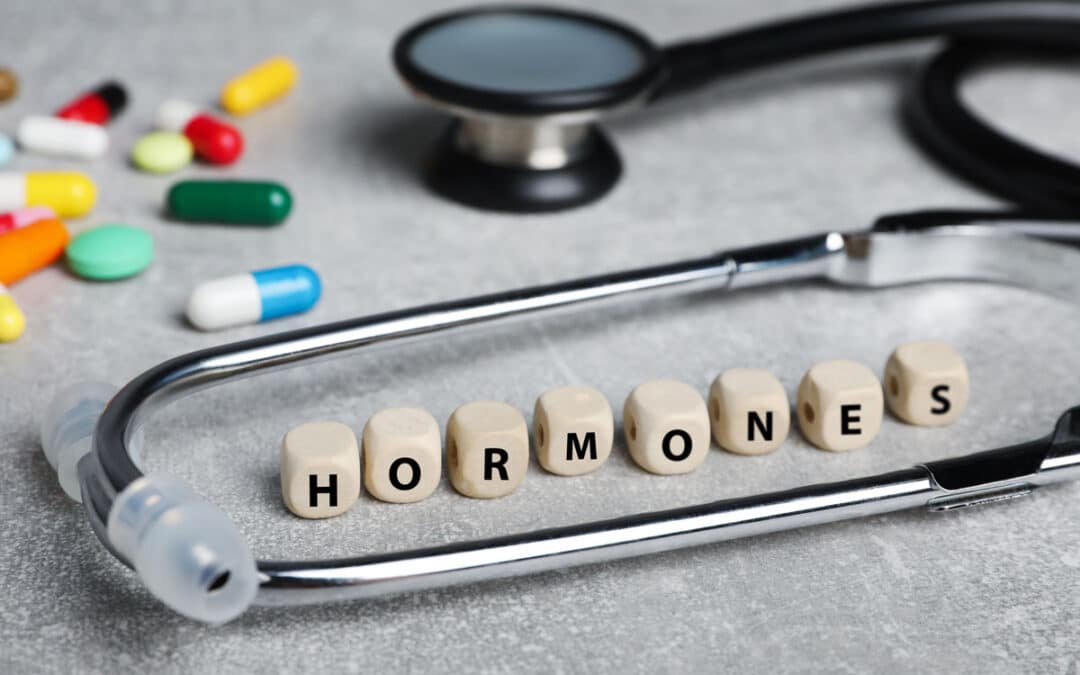Hormones are your body’s chemical messengers, controlling and coordinating activities throughout your body. When they’re in balance, you feel your best. But when they’re out of balance, even slightly, it can affect your physical and mental health in surprising ways.
As a nurse practitioner specializing in hormone health, I’ve seen firsthand how hormone imbalances can impact quality of life. Many patients come to me after years of unexplained symptoms, often having been told their tests are “normal” or that their symptoms are “just part of aging.”
Here are ten common signs that might indicate a hormone imbalance:
1. Persistent Fatigue
If you’re getting adequate sleep but still feel exhausted, hormones might be to blame. Imbalances in thyroid hormones, cortisol, or sex hormones can all contribute to chronic fatigue that doesn’t improve with rest.
2. Unexplained Weight Changes
Gaining or losing weight without changes to your diet or exercise routine can signal a hormone issue. Thyroid imbalances, insulin resistance, and cortisol dysregulation can all affect your weight.
3. Mood Swings and Anxiety
Estrogen and progesterone don’t just affect reproductive health—they also influence mood. Fluctuations in these hormones can cause irritability, anxiety, and mood swings. Thyroid imbalances can also contribute to depression and anxiety.
4. Sleep Disturbances
Hormones like melatonin, cortisol, progesterone, and insulin all play roles in regulating sleep. Imbalances can lead to insomnia, difficulty staying asleep, or poor sleep quality.
5. Digestive Problems
Thyroid hormones, cortisol, and estrogen can all affect gut function. Hormone imbalances might manifest as bloating, constipation, diarrhea, or other digestive issues.
6. Skin and Hair Changes
Dry skin, acne, thinning hair, or excessive hair growth (hirsutism) can all be signs of hormone imbalances. Thyroid disorders, PCOS, and changes in estrogen or testosterone levels often show up on your skin and hair.
7. Low Libido
A decrease in sex drive can result from imbalances in estrogen, testosterone, or thyroid hormones. This affects both men and women and is often dismissed as “normal aging” when it could be addressed.
8. Brain Fog
Difficulty concentrating, memory lapses, and general cognitive fuzziness can be related to thyroid imbalances, cortisol dysregulation, or changes in estrogen levels.
9. Temperature Sensitivity
Feeling unusually cold or hot, experiencing night sweats, or having cold hands and feet can indicate thyroid imbalances or, in women, changes in estrogen levels.
10. Irregular Periods or Severe PMS
For women, changes in menstrual patterns, very heavy or painful periods, or severe PMS symptoms can signal imbalances in estrogen, progesterone, or other hormones.
What to Do If You Suspect a Hormone Imbalance
If you’re experiencing several of these symptoms, it’s worth investigating potential hormone imbalances. Here are some steps to take:
- Keep a symptom journal: Track when symptoms occur, their severity, and any patterns you notice.
- Consider lifestyle factors: Stress, poor sleep, nutrition, and environmental toxins can all affect hormone balance.
- Seek comprehensive testing: Standard lab ranges don’t always tell the full story. Work with a provider who understands the nuances of hormone testing.
- Look at the whole picture: Hormones work as a system, so it’s important to consider how they interact rather than looking at each in isolation.
At Commit 2 Health, we take a comprehensive approach to hormone health. We listen to your symptoms, conduct appropriate testing, and develop personalized treatment plans that may include lifestyle modifications, nutritional support, and hormone therapy when appropriate.
Remember, hormone imbalances are common but not inevitable. With the right approach, you can restore balance and improve your quality of life.

